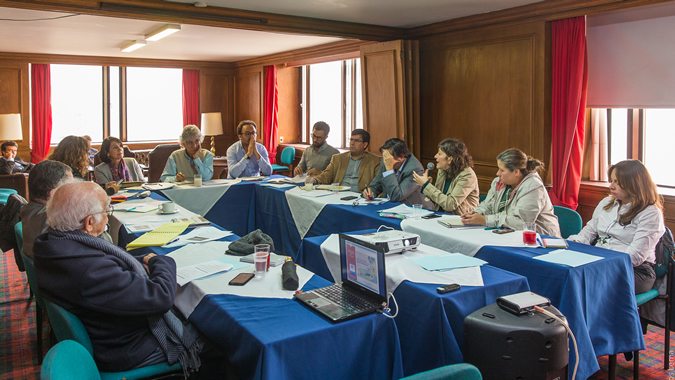ECLAC Promotes in Colombia the Strengthening of Policies for Inclusive Territorial Development
The organization’s office in that country held a workshop of experts on the conceptual framework of the project it is implementing, which forms part of the United Nations Development Account.

The isolation of territories and populations in Colombia has left them excluded from pathways to progress, given the entrenched urban bias of development. Contributing to this is the country’s complex geography, the weakness of the State (aggravated by the armed conflict), weak institutional capacities for managing local development, and the sectoral and functional fragmentation of policies.
For these reasons, ECLAC’s Office in Bogotá has been implementing since 2018 the project “Rural-urban linkages for inclusive development in Colombia”, which is part of the United Nations Development Account[1], with the aim of strengthening policies for regional and territorial development, through the analysis of the interactions that occur between urban and rural spheres, identifying two-way relationships that transform weak and asymmetrical ties and foster mutual benefits for the inhabitants of cities and of the countryside.
The promotion of this territorial interweaving seeks to strengthen the flows, interactions, exchanges, interdependencies, connections, networks, interlacing – in other words, the diverse types of shared fabric and the different objectives of the communities and other actors in the territory.
On May 30, 2019, a group of experts was consulted about the concept of rural-urban fabric and the relevance of strengthening it through public policies that promote inclusion and the closing of gaps between territories.
The participants highlighted the opportunity that this project presents for delving deeper into public policies to respond to the great heterogeneity of territories, in some of which violence has also woven ties.
They underscored the tension between local and national jurisdictions in the analysis of social dynamics and the need to foster greater understanding of communities’ strategies to improve their well-being.
The attendees also insisted on the need for new narratives in the territories, such as those of tourism, traditional festivals and ecosystems, which interweave stories, cultures, economics and development.
The importance of the 2030 Agenda was also analyzed, along with the need to promote and evaluate achievements on a territorial scale and to achieve inclusive development as its real long-term objective.
They called attention to the urgency of understanding the reasons why some regions manage to utilize new instruments designed for territorial development and others do not, and to the importance of reclaiming collective efficiency, in addition to individual efficiency, for the interaction of territories. They also reiterated the need for policy coordination and articulation.
Finally, they expressed support for this project’s aim to create spaces where actors dialogue, identify and achieve consensus on effective strategies to promote territorial development.
[1] Rural-urban linkages for inclusive development in Colombia 2018-2021/1819AG. https://www.un.org/development/desa/da/project-view-public/
Subregional headquarter(s) and office(s)
Type
Country(ies)
Related project(s)
Contact
Oficina de la CEPAL en Bogotá
- cepalbogota@un.org
- (57-601) 736-6600
